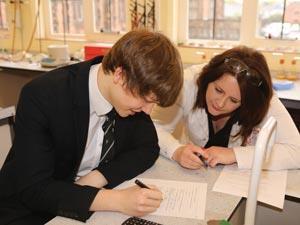Kristy Turner suggests how teachers can help students make a smooth transition from school to university based education

There is increasing focus on issues of transition in universities, and rightly so. For too long, universities have taken little notice of the knowledge and skills their students have or have not developed in school and risked leaving parts of their cohort behind or even bored by repeated content.
Schools and colleges are under relentless pressure. Those A-level and IB grades count and it is tempting to accede to this and begin to believe we are merely content delivery machines.
I work on both sides of this divide and in the fight to reclaim our profession from those pressures I believe teachers have a much greater part to play in easing transition to further study.
Easing the pressure
Textbooks are still a huge part of university life, despite their steady decline in schools. However, undergraduates must routinely find appropriate supplementary texts, locate sections using the contents page or index and digest the information. Many universities now acknowledge the lack of this skill in their undergraduates and provide detailed information on appropriate texts and page numbers. In schools, there is more we could do to help. You may not have the most up to date textbook for your specification, it doesn't matter. The fundamentals of chemistry have changed little so even the oldest textbook in the cupboard would provide a useful exercise.
Similarly with note taking skills. Again, academics are adjusting to help first years by providing handouts with blanks to fill in. However, occasional lessons where students take notes and receive feedback on them can ease this transition. Provided suitable adjustments are made for students with additional needs, there is no reason why an occasional lecture style lesson shouldn't be included in a learning scheme. It may provide some useful variety. In my classroom, I photograph my whiteboard and the notes from a few students. Comparing the different outputs makes for a useful discussion about accuracy and readability of notes and possible next steps.
Simulate changes
Science undergraduates have to cope with diverse group dynamics, such as tutorial groups of six (perhaps even one or two in an Oxbridge supervision), workshops with 50, labs with 100 and lectures with 200+ students. School is not ideal preparation – A-level students typically spend two years within the same group of 10–20 in each of your subjects, possibly sitting in the same place in the room.
Changing group sizes can be challenging, especially in minority subjects. Schools and colleges with large chemistry or science cohorts can take advantage of coinciding timetables to vary situations and expose students to different group dynamics. At my school, the option blocks mean we have two chemistry classes in Year 12 being taught at the same time. These groups are often joined together for practical work and for one-off lecture style lessons. We hope to make greater use of university style pre-lab work when we develop this model further next year. For schools where timetabling restricts these options, cooperation between the sciences may help, organising study days for all science students or visits to larger public lectures.
Make deadlines real
I have heard reports of medical schools docking marks for work that is one hour late, even for first year students. In universities, deadlines mean something. Contrast this with the experience in schools and colleges. Thankfully the worst of the coursework days are behind us but I have taught in schools where deadlines are set deliberately early to allow for the significant number of the pupils who won’t submit on time. The deadline is often more of a target, and with a bit of charm and some parental support (or a handily placed music lesson) even deadlines for routine homework can become stretched. In reality it might not matter much if pieces of homework are received late but it can be hard for students to break long standing habits when at university.
Transition is the responsibility of everyone working with students in their last years of school and early years of further study
The model for work submission in schools and colleges almost exclusively involves pupils bringing their completed work to a lesson to be collected. Such are the economies of scale this never happens in universities. Work is either submitted electronically through a virtual learning environment, and completion and marks held within that, or it is handed in through an office and distributed to tutors.
At Manchester all tutorial work must be filed by Friday at 1pm when our office staff collate it. Deadlines are rigid, if the work is not filed, this is recorded and the information held centrally where it can be accessed by those who manage teaching. The advantages are that management can track student engagement with routine work without having to hassle teachers for copies of their mark books or additional comments. Secondly it prevents the inevitable elaborate excuses to gain an extension. It is much more black and white and if the deadline is the same each week then students must learn to plan for known absences and submit work in advance, rather than conveniently appear with it later. We plan to try this model with Year 13 next year and I’m excited to see what the results may be.
Everyone’s responsibility
Transition is the responsibility of everyone working with students in their last years of school and early years of further study. Teachers must also acknowledge their part and begin to meet universities half way. A few small changes to an A-level course could at least sow the seeds of developing useful skills for undergraduate life while also supporting the achievement of those all-important grades.
Kristy Turner is a teacher and school teacher fellow, splitting her time between teaching chemistry at Bolton School Boys’ Division and the University of Manchester









No comments yet